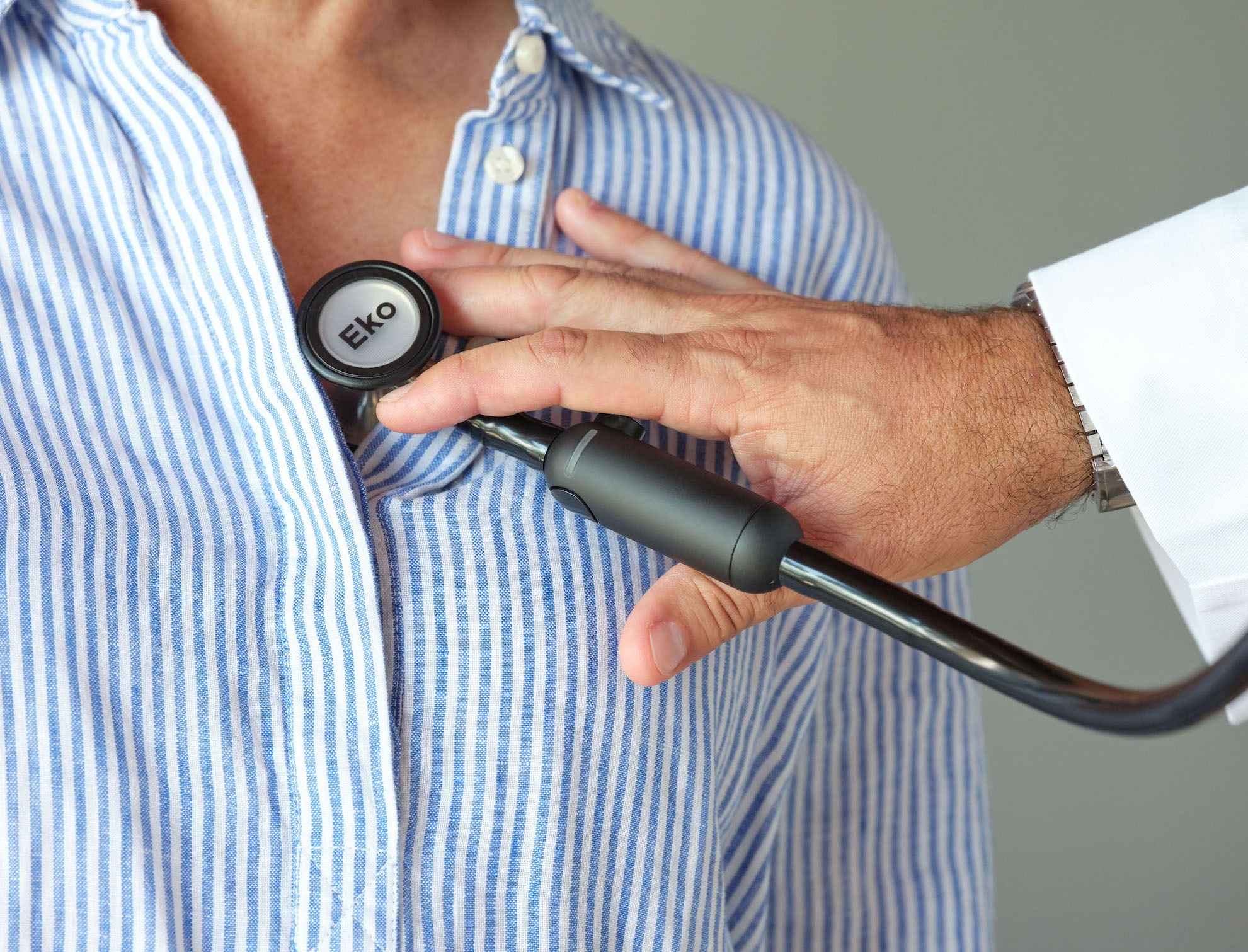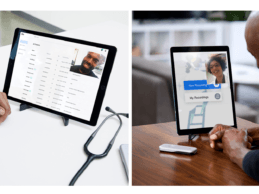Women currently comprise more than half of all students enrolled in medical school, but gender inequality continues to mar some areas of medicine. In our field of interventional cardiology, men outnumbered women 95 to 5 as recently as 2019, but new technology, shifting attitudes and strategic recruiting have led to an influx of females in interventional cardiology that will alter the evolution of a field historically stunted by traditionalism.
Cardiovascular disease is the most common cause
Read More
Cardiologist
FDA Grants Eko Emergency Use Authorization for Low Ejection Fraction AI
What You Should Know:
- The FDA granted Emergency Use Authorization to Eko for an ECG-based algorithm that screens for low ejection fraction, as part of an assessment of cardiac complications and co-morbidities associated with COVID-19.
- This ECG-based deep learning algorithm, developed on a large clinical dataset in collaboration with the Mayo Clinic, can help efficiently identify signs of possible heart failure in patients.
Eko, a digital health
company building
Read More
How Do We Make Dignity the Animating Principle in Healthcare?
Dignity-focused organizations are not easy to define, but also not hard to recognize. Justice Stewart
It’s all about the patient. Well, unless that patient has been to particular hospitals for treatment and is having trouble paying the ensuing bills. Then it’s about the hospital and collections agents and wage garnishments and such.
For this approach to providing care, the Lown Institute, a nonpartisan think tank advocating for bold healthcare ideas, honored a group of what they clearly
Read More
FDA Clears Eko’s AFib, Heart Murmur Detection Algorithms for AI-Powered Stethoscope
- StartX company, Eko, announced today that the FDA has cleared Eko’s AFib and heart murmur detection algorithms, making it the first AI-powered stethoscope to screen for serious heart conditions. - Eko’s algorithms alert clinicians to the presence of heart murmurs and atrial fibrillation (AFib) during the physical exam, converting the classic stethoscope into a powerful early detection tool. Eko, a digital health company applying artificial intelligence (AI) in the fight against heart disease,
Read More
3 AI Trends for 2020: Moving Beyond Dazzle to High-Impact Collaboration
From the first artificial skin to driverless cars that navigate busy streets with ease, 2019 brought a dazzling array of artificial intelligence (AI) discovery. In 2020, the progress made toward AI-fueled collaboration will be as critical as AI innovation—especially in healthcare.
We’ve reached a point where AI has proven its utility. In radiology, for example, AI is well-oriented to interpret diagnostic imaging studies, with FDA approval given to AI algorithms that diagnose a collapsed lung or
Read More
FDA Breakthrough Status Granted for Heart Failure Algorithm by Eko
- Eko announced the FDA has granted “breakthrough status” for an algorithm that could provide an easily accessible screening test for heart failure during routine physical exams.- This designation is awarded to novel innovations that demonstrate the potential to address unmet medical needs for life-threatening or irreversibly debilitating diseases. - Heart failure is often left untreated until it’s too late due to costs, inaccessibility to echocardiogram testing, or misdiagnosis. With nearly six
Read More
Eko Unveils Redesigned Smart Stethoscope and Stethoscope Attachment
- Eko unveils the second generation of CORE products, which includes a smart stethoscope and a stethoscope attachment designed to make any existing stethoscope smarter.- The technological advancements of the CORE include active noise cancellation, sleeker design, and powerful software to allow medical professionals to more effectively screen for heart disease.- The CORE Digital Attachment ($199) and the fully assembled CORE Digital Stethoscope ($249) are available for pre-order now to healthcare
Read More
Heart Failure is Detectable at Point of Care Using ECG-Enabled Stethoscope, Mayo Clinic and Eko Finds
- Eko and Mayo Clinic announced they have proven that heart failure is detectable during routine physical exams, further validating the Eko DUO digital stethoscopes as a heart failure screening tool. - Today’s news marks the first time that a point of care device with a single lead ECG combined with an AI algorithm identified low ejection fraction in patients.- The results of these findings, which are comparable to research published earlier this year in NatureMedicine, were presented over the
Read More
Bionic Pacemaker Slows Progression of Heart Failure, Research Finds
Using brain circuits made in silicon, scientists have alleviated symptoms of heart failure by reinstating the body’s natural heart rhythm. This study published today in The Journal of Physiology holds great potential for designing more effective pacemakers in the future.The research, funded by British Heart Foundation Horizons and European Union 2020 Horizon grants, is driving the commercial development of bioelectronic therapies for heart failure, which is undertaken by Ceryx Medical.Impact of
Read More
Eko Raises $20M to Expand Machine Learning Platform for Cardiac Monitoring/Analysis
- AI-driven digital health startup Eko raises $20M led by ARTIS Ventures with participation from 3M and Mayo Clinic.
- Funding will be used to accelerate research and development (R&D) and commercialization of Eko’s machine learning platform for cardiac screening/analysis.
- Eko’s cardiac monitor combines digital stethoscope and ECG technology both for in-clinic and at-home monitoring, which enables patients to seamlessly and consistently send cardiac data to their
Read More









